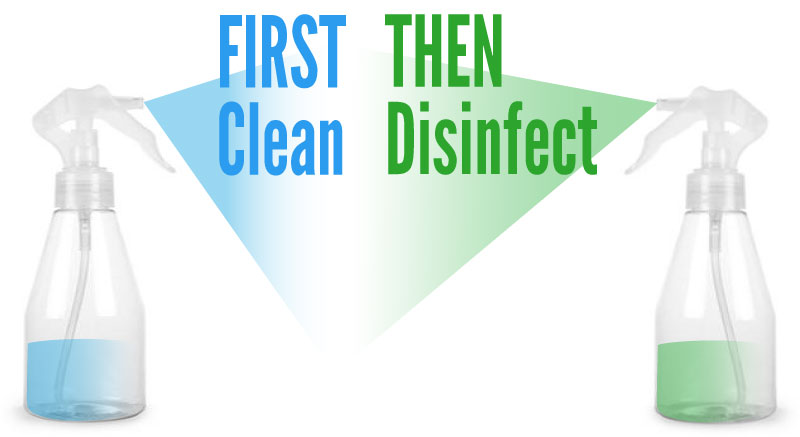cleaning, wood floor cleaning
Clean Before You Disinfect Your Countertops And Floors
If you’re like most, you want to do all that you can to keep loved ones healthy. While there’s no perfect way to inhibit the transmission of the COVID-19 virus, experts recommend keeping the hard surfaces around your home clean and disinfected.
At Mr. Floor, we understand cleaning and so we thought our insight might be helpful.
First, if you’re looking for the most detailed suggestions on minimizing the risk of transmitting the virus at home, here are the CDC recommendations for cleaning and disinfecting your home. The document is very useful in understanding how the virus lives on household surfaces and the types of disinfectants that can kill the virus – after the surface has been cleaned of dirt, food and grease.
The mantra of the CDC recommendations is to clean before you disinfect. For the disinfectant to work at maximum effectiveness it must be applied to a clean surface.
Purchase Microfiber Pads, Cloths, Bar Mop Towels Rather Than Paper Towel
Assuming that people continue to buy paper towels as if it were the cure to COVID-19, you can be a smart consumer by purchasing microfiber mop pads, microfiber towels, and cotton bar mop towels to do your cleaning. All of these are readily available and, when you factor in multiple use, are inexpensive.
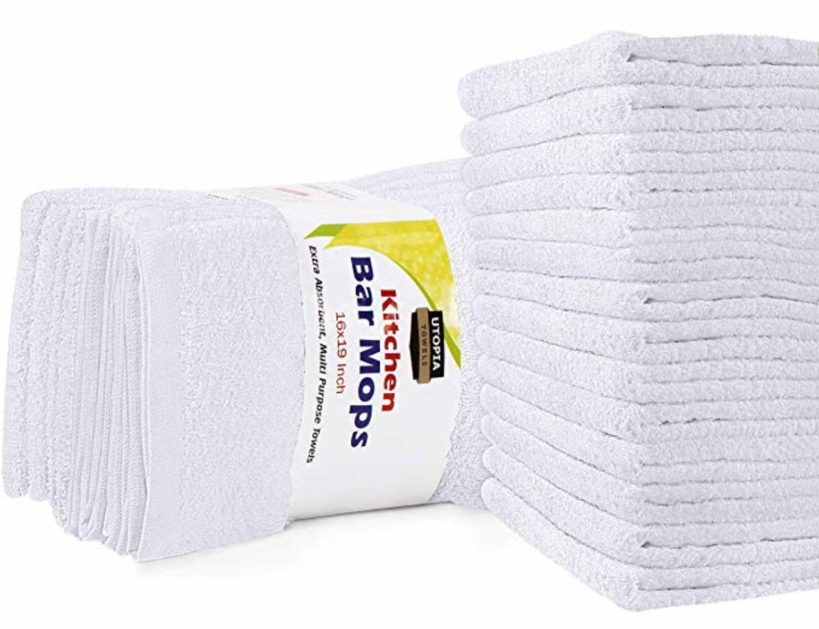
COVID-19 is quickly and easily killed by machine washing any of these items, so you don’t need to fear that they will harbor illness. Our suggestion is that you set aside a plastic garbage bag specifically for the purpose of holding the dirty cleaning items until you’re ready to do a laundry load for these items. When the time comes to launder these items, put on your rubber gloves and load them into the washing machine. Even though you don’t need to, use hot water when you do the load of cleaning cloths and microfiber pads. Don’t worry about using bleach. You’ll need that for disinfecting purposes.
Always Wear Rubber Gloves When You Clean
Before you start cleaning anything in a sick household, wear a pair of dish washing gloves It’s difficult to get a box of vinyl or nitrile disposable gloves at the time we write this (2020-03-23) so go to Amazon, Walmart, Target or whatever your favorite store is and by a half-dozen pairs of gloves.
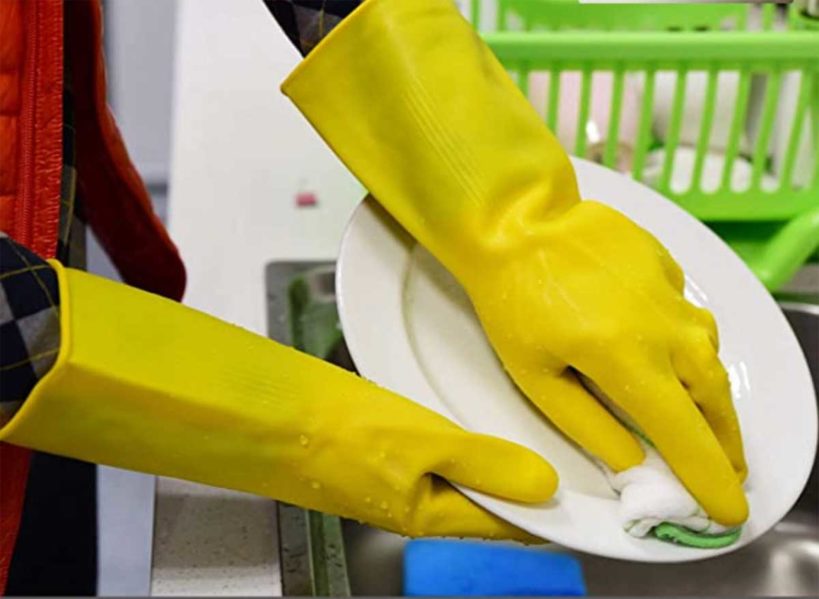
Before you begin any cleaning, put the gloves on and wash them as if you were washing your hands. When you’re done cleaning – and haven’t touched your face during the cleaning process – wash your hands with the gloves on and have a clean place for them to dry. Leave the water running. (I use an old Amazon cardboard box that has been disinfected with isopropyl alcohol spray.)
Take off the gloves, place them in their drying location, and then wash your hands under the already running water.
Now that you’ve got the glove sanitation process down pat, you’re ready. Let’s get to cleaning!
Clean Before You Disinfect
Whether you’re using one of Mr. Floor’s cleaners, or any commercially available hard surface cleaner, the key is to remove food, dirt and grease from the surface before you spray on any disinfectant. Cleaning a countertop, sink or floor before you spray disinfectant ensures the maximum effectiveness of the disinfectant.
After putting on your gloves, grab your spray bottle of Countertop or Tile & Grout cleaner and wet the surface, but don’t soak it. Using a microfiber cloth or bar towel, wipe the countertop in a single direction with deliberate strokes. The goal is to pick up the dirt without tossing about any of the virus on the surface.
When you’ve cleaned the surface, run the cloth under water, wring it out, and then put that dirty cloth in a plastic garbage bag for laundering later. Once that’s complete, you can then apply the disinfectant.
Disinfecting Bathroom, Laundry Room and Kitchen Work Surfaces
- Use diluted household bleach solutions if appropriate for the surface. Check to ensure the product is not past its expiration date. Unexpired household bleach will be effective against coronaviruses when properly diluted.
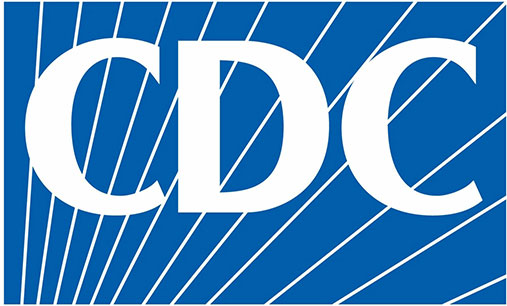
Follow manufacturer’s instructions for application and proper ventilation. Never mix household bleach with ammonia or any other cleanser.
To make a bleach solution, mix:
5 tablespoons (1/3rd cup) bleach per gallon of water
OR
4 teaspoons bleach per quart of water
Alcohol solutions with at least 70% alcohol.
Most EPA-registered household disinfectants should be effective.
In normal circumstances, Mr. Floor would not recommend the use of cleaners containing bleach on natural stone surfaces, especially porous stone like marble or slate. However, we’re in a unique situation so you do what you must to disinfect the hard countertop surfaces.Isopropyl alcohol will typically not harm natural or manufactured stone, but it will remove any sealant or other non-permanent protective coating with repeated use. Don’t worry, however, because you can reseal the stone once the emergency has passed.
What If I Can’t Find Bleach, Alcohol, or Commercial Disinfectant Spray?
First, it’s important to remember that while Mr. Floor is expert at cleaning wood floor, counters and other household surfaces, we are not virologists. This reflects our opinion and is not the recommendation of the CDC.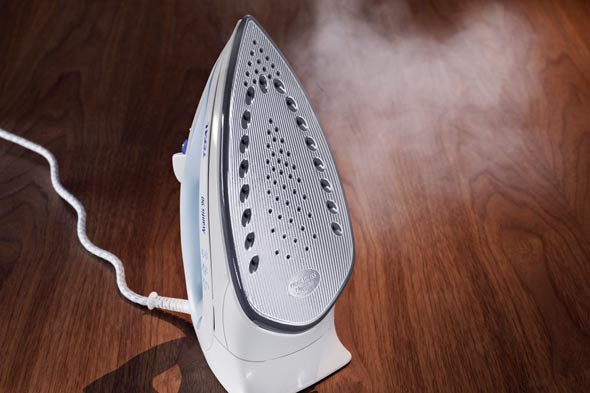
Finally, if you’ve got someone sick in the house and you can’t get bleach, isopropyl alcohol or other disinfectant cleaners, and you need to disinfect a bath or kitchen countertop, you might consider the following. Grab your steam iron, fill it with water and once it heats up, hold it a quarter of an inch above the countertop and push the steam button to shoot steam out the bottom. The results aren’t guaranteed, but it might help in a pinch.
If you can afford it, you might consider a steam cleaning, too, which has proven effective in killing upwards of 99% of bacteria and viruses. Try not to use the steam cleaning tool on a wood floor as that is almost certain to cause damage.
How Best to Clean and Disinfect Your Floor
If you’re cleaning a floor, follow our normal deep cleaning recommendations as found on our website. However, wear gloves when you remove the mop pad or bar towels from the mop as there may be virus picked up from the initial cleaning of the floor. If you don’t intend to wash the pads or towels immediately, place them in a plastic bag for laundering later.
Here’s another tip. In a pinch, our Wood Floor Cleaner can be used to safely clean virtually any surface from daily grease, food, toothpaste, etc. The Wood Floor Cleaner is safe and will effectively clean any hard surface, even stainless steel, tile and stone.
We’re offering a 20% discount on any products purchased in our online store through the end of the month. Use the coupon code “HealthyHome” to receive this discount through April 15, 2020.
Please be safe. Feel free to email us with any cleaning questions.
Igor Murokh
Igor is a graduate of the University of Illinois and holds a B.A. in Economics. He has worked in the flooring industry for over 20 years and is the VP and Sales Manager of Mr. Floor Companies in Skokie, IL. Igor is a certified wood flooring inspector (CWFI) and routinely helps clients assess flooring issues.

